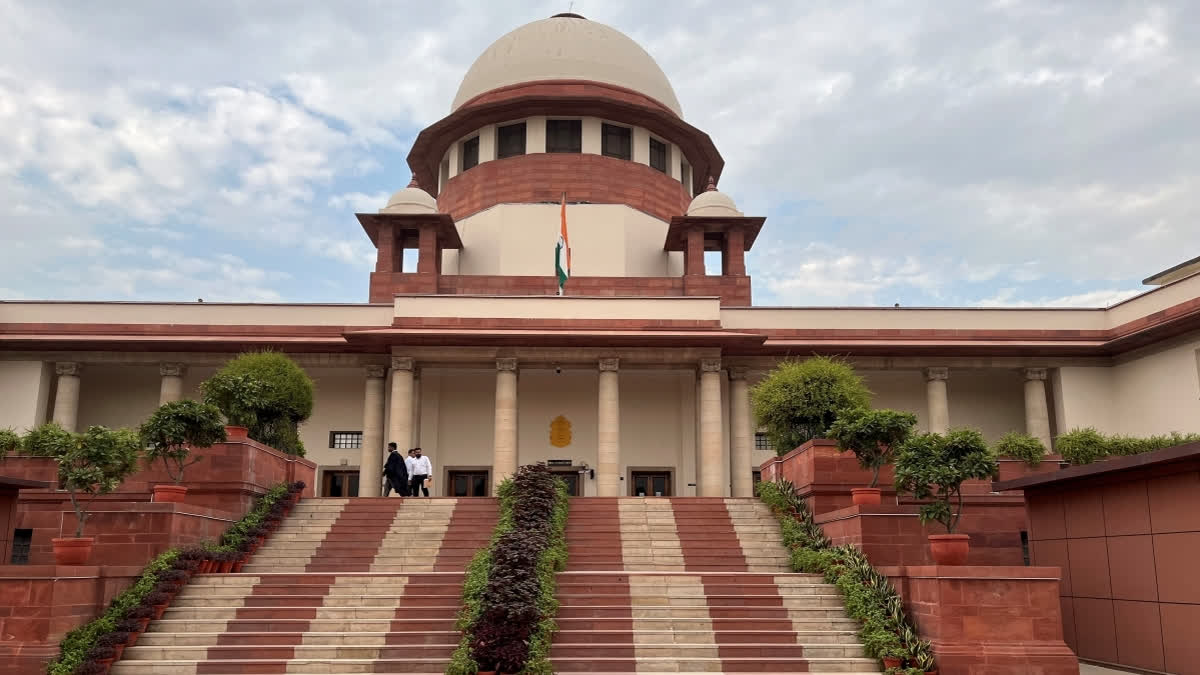New Delhi: A five-judge constitution bench of the Supreme Court Wednesday held that an arbitration agreement can be binding on non-signatory firms under the 'Group of Companies' doctrine.
The bench led by Chief Justice D Y Chandrachud delivered its judgment on a plea filed by Cox and Kings Ltd in a dispute arising out of an arbitration agreement. The bench, also comprising justices Hrishikesh Roy, PS Narasimha, JB Pardiwala and Manoj Misra, said: “The group of companies’ doctrine should be retained in the Indian arbitration jurisprudence considering its utility in determining the intention of the parties in the context of complex transactions involving multiple parties and multiple agreements”.
The bench, in its 152-page judgment, said the definition of “parties” under Section 2(1)(h) read with Section 7 of the Arbitration Act includes both the signatory as well as non-signatory parties. “Conduct of the non-signatory parties could be an indicator of their consent to be bound by the arbitration agreement. The requirement of a written arbitration agreement under Section 7 does not exclude the possibility of binding non-signatory parties”, it said.
The bench said to apply the group of companies doctrine, the courts or tribunals, as the case may be, have to consider all the cumulative factors laid down in the Discovery Enterprises case. “Resultantly, the principle of single economic unit cannot be the sole basis for invoking the group of companies doctrine”, it noted. “The group of companies doctrine has an independent existence as a principle of law which stems from a harmonious reading of Section 2(1)(h) along with Section 7 of the Arbitration Act”, it said.
The bench noted that since consent forms the cornerstone of arbitration, a non-signatory cannot be forcibly made a “party” to an arbitration agreement as doing so would violate the sacrosanct principles of privity of contract and party autonomy. However, in case of multiparty contracts, the courts and tribunals are often called upon to determine the parties to an arbitration agreement, it added.
The bench said, “The underlying basis for the application of the group of companies doctrine rests on maintaining the corporate separateness of the group companies while determining the common intention of the parties to bind the non-signatory party to the arbitration agreement”.
The bench said an arbitration agreement arises out of a defined legal relationship between the parties with respect to a particular subject matter. Commonality of the subject matter indicates that the conduct of the non-signatory party must be related to the subject matter of the arbitration agreement, it added. “For instance, if the subject matter of the contract underlying the arbitration agreement pertains to distribution of healthcare goods, the conduct of the non-signatory party should also be connected or in pursuance of the contractual duties and obligations, that is, pertaining to the distribution of healthcare goods”, it said.
The bench said the requirement of a written arbitration agreement does not exclude the possibility of binding non-signatory parties if there is a defined legal relationship between the signatory and non-signatory parties. ”Once the validity of an arbitration agreement is established, the court or tribunal can determine the issue of which parties are bound by such agreement”, said the bench.
Besides the CJI, Justice Narasimha wrote a separate concurring judgment in the matter. Justice Narasimha said an agreement to refer disputes to arbitration must be in a written form, as against an oral agreement, but need not be signed by the parties. He said under Section 7(4)(b), a court or arbitral tribunal will determine whether a non-signatory is a party to an arbitration agreement by interpreting the express language employed by the parties in the record of agreement, coupled with surrounding circumstances of the formation, performance, and discharge of the contract. “While interpreting and constructing the contract, courts or tribunals may adopt well-established principles, which aid and assist proper adjudication and determination. The Group of Companies doctrine is one such principle”, said justice Narasimha.
According to the doctrine, a firm which is not a signatory to an arbitration agreement between two parties can be held bound if such a company is part of the same group of companies which agreed to such a clause or agreement. In May 2022, the case was referred to a larger bench by a three-judge bench headed by the then CJI, N V Ramana, saying that certain aspects of the ‘group of companies’ doctrine needed reconsideration.
The constitution bench dealt with certain questions including whether the group of companies doctrine should be read into Section 8 of the Arbitration Act or whether it can exist in Indian jurisprudence independent of any statutory provision.
Also read:



